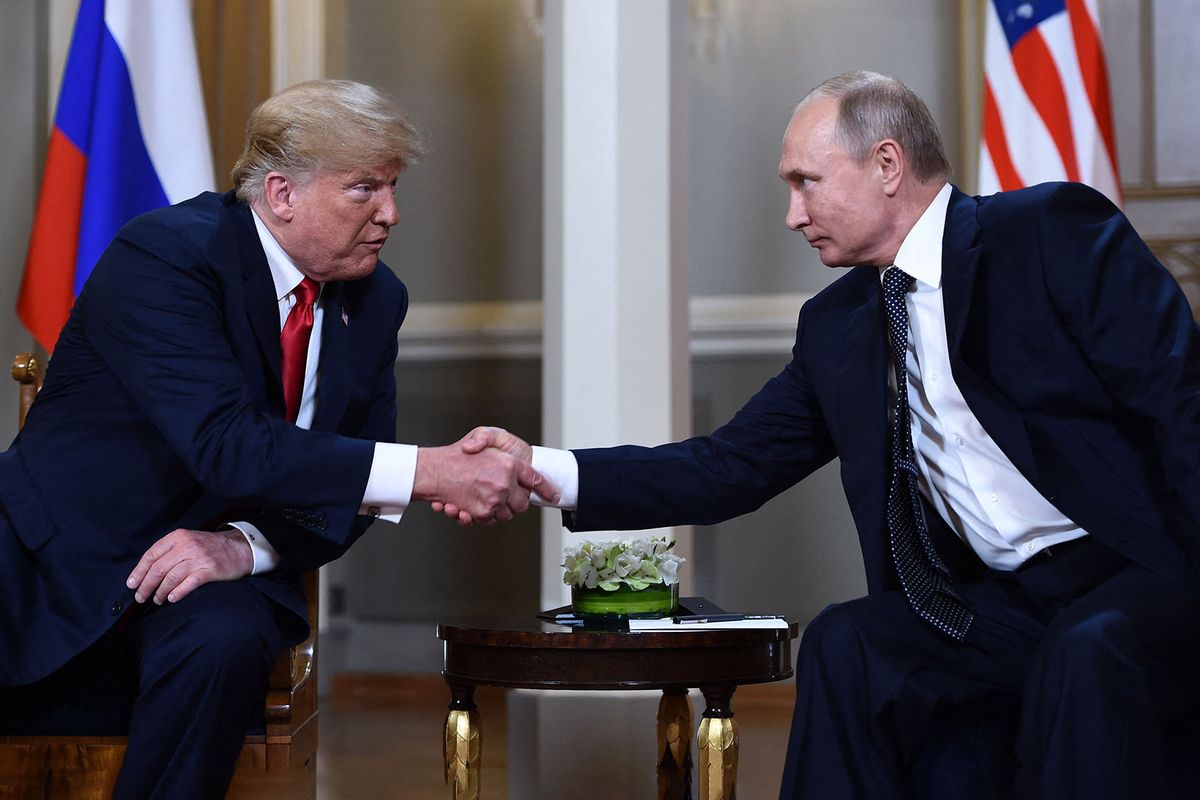Tuesday’s debate between former President Donald Trump and Vice President Kamala Harris was riveting and drew a worldwide audience. But one of Trump’s most disturbing threats got lost in the flood of post-debate analyses. It was a brief remark but a clear threat to the rule of law. Trump made a boast that would violate the Logan Act, which makes it a felony for private citizens, including presidents-elect, to interfere in foreign policy. Its non-enforcement over time may have emboldened Trump, but it remains the law and both he and the voters need to keep that in mind – for him, to invite yet another investigation, and for the voters, to consider what this, along with the other evidence, says about his fitness for the nation’s highest office.
Midway through the debate, ABC News host and co-moderator David Muir asked Trump “a very simple question” about the Russo-Ukrainian War: “Do you want Ukraine to win this war?” In response, Mr. Trump went on for over 400 words, without ever answering Muir’s question. Along the way, however, he offered the following:
That is a war that’s dying to be settled. I will get it settled before I even become president. If I win, when I’m President-Elect, . . . I’ll speak to one, I’ll speak to the other, I’ll get them together.
On one level, Trump’s response was the usual promoting of himself as a fabulous negotiator. Of course, he did not specify how he would achieve “peace in our time,” or on what terms. It would almost certainly be what he has previously said he would do: gifting Vladimir Putin, the Russian aggressor and strongman whom Mr. Trump has long admired, the promise of a complete withdrawal of U.S. support for Ukraine. That would doom that country and embolden Russia for future aggression against others.
The geopolitical implications aside, what Trump said he would do if elected is illegal. “Getting together” the Russian and Ukrainian leaders to “get it settled” before taking office would violate the Logan Act. First enacted in 1799, it provides:
Any citizen of the United States . . . who, without authority of the United States, directly or indirectly commences or carries on any correspondence or intercourse with any foreign government . . . with intent to influence the measures or conduct of any foreign government . . . in relation to any disputes or controversies with the United States, or to defeat the measures of the United States, shall be fined under this title or imprisoned not more than three years, or both.
What Trump promised to do would plainly violate this law because as president-elect, he would remain a mere “citizen of the United States,” and it is inconceivable that the outgoing Biden administration would approve what he says he plans to do. Jumping the gun in foreign relations before taking office is a felony. We only have one President at a time.
The last time anyone was prosecuted under the Logan Act was 1852, and there has never been a conviction under it. While it has surfaced from time to time, this is the first time a presidential candidate has publicly stated, in the course of a globally televised debate no less, an intent to violate federal law. This comes on top of reports last month that Trump may already have crossed the Logan Act line in interactions with Israeli Prime Minister Benjamin Netanyahu. (Both men denied the reports.)
Nonetheless, Trump’s promise should not be dismissed as mere puffing. We know from history that the temptation of a presidential challenger to disrupt peace efforts for the challenger’s own political benefit can be irresistible. In 1968, Richard Nixon enlisted Anna Chenault to help gum up the Paris Peace talks among the United States, Ho Chi Minh’s North Vietnamese government, and the South Vietnamese government, which was utterly dependent on U.S. arms and aid.
According to Politico, Nixon’s promises of unconditional support, conveyed by Chennault and others, “no doubt helped to persuade the South Vietnamese government to boycott proposed peace talks, shutting a door that Johnson had opened and clinching Nixon’s victory.” More than 20,000 American GIs died in Vietnam after Nixon’s foreign policy interference led to the failure of the 1968 Paris peace talks.
If Trump were elected and were to follow through on his threat before taking office, like Nixon, Trump would be a private citizen “defeat[ing] the measures of the United States” to aid Ukraine. One reason he can with impunity cross lines set by the Logan Act is that neither Nixon nor anyone else is ever investigated or charged for the Act’s violation.
Consequences for violating the Logan Act are needed to deter self-serving presidential challengers from complicating the critical waning months of an outgoing administration — when major national interests are likely to be at stake — by presuming to exercise presidential powers prematurely. The hard road to restoring the rule of law to which Trump has repeatedly taken a jackhammer is paved by enforcing the law. A muscular Justice Department policy on Logan Act violations would help achieve that restoration.
Read more
about Trump and the debate
